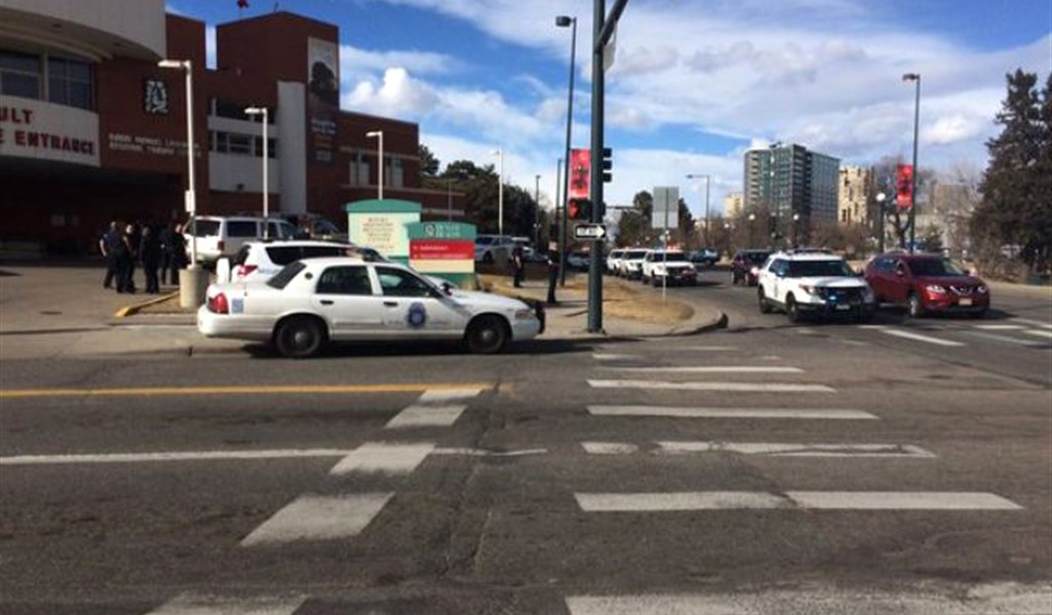The actual story behind this headline isn’t quite as crazy as it might sound. Police all over the country receive 911 calls involving people who are apparently experiencing a crisis in mental health or substance abuse on a regular basis. There are times when the police respond to these calls that a situation already in crisis goes even further south and a violent (or even lethal) encounter can ensue. The city of Denver, Colorado has, for the past year, been experimenting with a different approach. They set up a program called Support Team Assistance Response (STAR) under which a call identifying a distressed person in such circumstances isn’t approached by uniformed law enforcement, but instead by a social worker and a paramedic in an unmarked van who attempt to render aid and safely get the person to a facility where they can receive help. But it’s also a bit more complicated than that short description might make it sound. (NBC News)
The calls come into 911 every day: A homeless man is standing outside a liquor store screaming and acting aggressive. A woman is having a mental health crisis and says she can’t feel her body or face. A man who was escorted away by police 90 minutes ago has returned and is exposing himself and urinating on buildings.
Instead of being routed to police, this type of call is handed over to STAR, short for Support Team Assistance Response, a year-old program that sends a social worker and paramedic to low-level emergency calls. Of the 1,351 calls STAR responded to over the last year, not one had to request backup from the Denver Police Department.
STAR rolled out in June 2020 just as the nation convulsed with outrage over the death of George Floyd under the knee of then-Minneapolis Police Officer Derek Chauvin and protesters demanded sweeping police reform.
Sounds good, right? Why put the police into a potential use-of-force situation when a social worker and a paramedic might be able to restore order and get someone some help? But the excerpt I included above as well as the rest of the report are a bit deceptive in some ways and fail to account for some important factors.
First of all, NBC News claims that not a single one of the more than 1,300 calls STAR responded to resulted in a need to call the Denver PD for backup. That may be technically true, but what they’re not saying is that more than a third of those calls (more than 450) were received from Denver PD officers who arrived at the scene first and decided to let STAR try to handle it. There was no need for backup because the cops were already there and hung around to make sure the STAR team could deal with it.
Also, the program screens the 911 calls as carefully as possible. The full report states that the 911 center received 6,400 calls during the period the program has been running that would have been eligible for a STAR response, but they only dispatched a STAR van in 3% of those cases. They do not send out STAR to any call where the suspect is either armed or exhibiting violent behavior. (Which is smart.)
When you take all of those facts into account, Denver is far from “replacing the police” when dealing with mental health or addiction crisis encounters. They’re really just turning over the ones where it’s fairly clear that the person in crisis was not really presenting much of a threat, to begin with, and was probably amenable to accepting some help. And in those types of cases, good for them. It’s probably a fine idea.
But not always. While they don’t seem to have run into a worst-case scenario yet, it can’t be ruled out. This is very similar to the cities that want to replace police officers on traffic duty with civilians carrying a clipboard. That might actually work out well enough 99 out of 100 times. But as we’ve discussed before, it’s that one time out of one hundred when the guy who blew through the stop sign turns out to be an armed felon with a stack of bench warrants. That’s when the situation can go from normal to lethal in under one second.
Keep in mind what happened with Daniel Prude in Rochester, New York. He was, according to later reports, both mentally ill and a drug addict. He’s already been in the ER once that day after nearly overdosing and threatening to kill himself. By the time the cops arrived after his second “crisis” of the day, he was out in the middle of the street buck naked, so high on PCP that he was screaming about demons and seemingly out of touch with reality. Would you really want to send out a STAR van to deal with someone like that?
The same could happen in Denver with the STAR program. Just because someone is in genuine need of mental health care or substance abuse treatment doesn’t mean that they might not also have violent tendencies. They could also turn out to be armed, even if they haven’t displayed a weapon yet. And when anyone “official” looking suddenly approaches them, the situation could go pear-shaped in seconds. With that in mind, I’d probably be more inclined to support a program like STAR if an officer was dispatched at the same time, even if they keep their distance, just to make sure they are available to help the STAR team if the situation suddenly goes to hell.








Join the conversation as a VIP Member